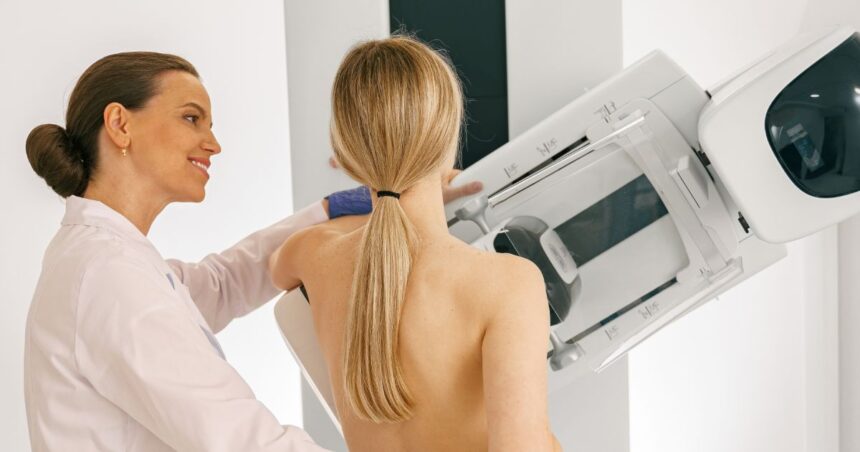Mammograms are crucial tools in the early detection and prevention of breast cancer. For women in Miami, understanding the importance of regular mammograms, knowing where to get them, and being aware of the latest technologies and best practices can significantly improve their health outcomes.
In this blog post, I will get into everything you need to know about mammograms in Miami, from the basics of the procedure to finding the right healthcare providers.
The Importance of Mammograms
Mammograms are X-ray images of the breast used to detect early signs of breast cancer, often before symptoms appear. Early detection through mammograms can lead to earlier treatment, significantly increasing survival chances.
The American Cancer Society recommends that women aged 40 and older should have a mammogram every year, although the exact recommendations can vary based on individual risk factors.
Why Early Detection Matters
- Increased Survival Rates: Early detection of breast cancer can increase the five-year survival rate to nearly 100%.
- Less Aggressive Treatments: Finding cancer early often means less extensive surgery and less aggressive treatments.
- Better Quality of Life: Early treatment generally results in better overall patient outcomes and quality of life.
Mammogram Guidelines and Recommendations
These guidelines provide crucial information on the optimal timing and frequency of screenings, helping to save lives through timely intervention.
General Recommendations
- Women Aged 40-49: Discuss with your doctor when to start and how often to have a mammogram.
- Women Aged 50-74: It is generally recommended to have a mammogram every two years.
- Women 75 and Older: Screening decisions should be based on individual health conditions and discussions with healthcare providers.
High-Risk Factors
Women at higher risk for breast cancer may need to start screenings earlier and may require additional tests. High-risk factors include:
- Family history of breast cancer
- Genetic mutations such as BRCA1 or BRCA2
- Previous radiation therapy to the chest
- History of breast cancer or certain non-cancerous breast diseases
Understanding the Procedure
Understanding the mammogram procedure is necessary for anyone considering this important screening in Miami. This section will guide you through what to expect before, during, and after your mammogram to ensure you feel prepared and informed.
What to Expect During a Mammogram
- Preparation: Avoid using deodorants, antiperspirants, lotions, or powders on the day of the exam, as they can appear on the mammogram and cause confusion.
- During the Exam: You will stand before a special X-ray machine. The technologist will place your breast on a platform and compress it with a paddle to spread out the breast tissue. This can be uncomfortable but only lasts a few seconds.
- After the Exam: A radiologist will examine the X-ray images for any signs of cancer or other abnormalities. You typically get results within a few days.
Types of Mammograms
- Screening Mammograms: Routine exams are performed on women without any symptoms. They usually involve two X-rays of each breast.
- Diagnostic Mammograms: If you have symptoms like a lump, pain, or nipple discharge or if a screening mammogram detects something unusual, more detailed X-rays are used.
Insurance and Cost Considerations
Most insurance plans, including Medicare, cover the cost of annual mammograms for women aged 40 and older. However, you must check with your insurance provider to understand your coverage. For uninsured or underinsured women, programs like the National Breast and Cervical Cancer Early Detection Program (NBCCEDP) offer free or low-cost mammograms.
Making the Most of Your Mammogram Appointment
Tips for a Smooth Experience
- Schedule Smartly: Try to schedule your mammogram when your breasts are least likely to be tender, such as the week after your menstrual period.
- Bring Previous Records: If you’ve had mammograms done elsewhere, bring those records with you for comparison.
- Communicate: Inform the technologist if you have any symptoms or are pregnant or breastfeeding.
Follow-Up Care
If your mammogram shows something unusual, it doesn’t necessarily mean you have cancer. Additional tests such as ultrasound, MRI, or a biopsy may be needed to investigate abnormalities further.
The Bottom Line
Regular mammograms are an essential part of women’s health care, offering the best chance for early detection of breast cancer. For women in Miami, various high-quality healthcare providers and advanced technologies are available to ensure the best possible outcomes.
By staying informed and proactive about mammograms, you can take an essential step toward maintaining your health and well-being.
Remember, early detection saves lives, so schedule your mammogram today.

